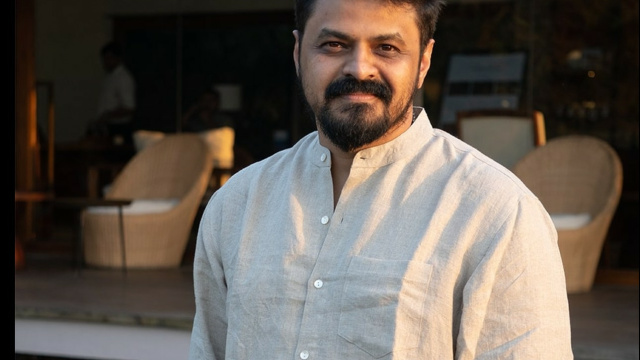Hosts
All People of Singular

Maulik Bhagat
As a social architect and lifelong learner, Maulik’s journey is shaped by an insatiable curiosity and a passion for exploring the interconnectedness of diverse fields. With a thinker’s mindset and a deep interest in multiplicity, his path has naturally expanded across hospitality, technology, design, education and social enterprise. For Maulik, good design is not just an outcome — it’s a process of collective discovery and shared inspiration.
Marking his presence as a modern social entrepreneur, Maulik leads a spectrum of ventures that reflect both diversity and are in their very nature a force for good. One such forward-thinking endeavour is 1000 Island Hotels and Resorts, with Woods at Sasan as the flagship property, co-designed with his friend and architect Maria Portella. Together with Maria and the design atelier team, which includes around 32 local artisans, the project has been shaped with deep thought and introspection. Social architecture has been carefully woven into its creation, with the entire build using only organic materials and no cement. Brought to life with a strong sense of mission, this collaboration demonstrates how a hotel can contribute meaningfully to the place-making of its bio-region.
Maulik’s journey began as a software engineer in the process of which he developed a nuanced understanding of systems design. Eventually, he established India’s first biophilic retreat, inspired by the spirit of the Kathiawar-Somnath bio-region.
Today, Woods at Sasan isn’t just a hotel — it’s a living experience. It wouldn’t be an overstatement to say that regeneration, as a process, is intrinsically connected to all living systems, and the retreat truly embodies this spirit. In the heart of Gir, soulful, forward-looking and place-making efforts go beyond simply creating a hospitality experience.
Maulik always believes that hospitality, as an entity, has the power to touch lives—through its very nature of creating multiple touchpoints where the lives of all stakeholders involved can be meaningfully engaged. It is impactful even in urban contexts — it does something to you. It leaves an impression, a shift in how you feel and interact. Yet, it is especially powerful for the place and the people it is rooted in, grounding you, connecting you and giving you a sense of belonging.
He is now pioneering three new food forest projects — focused on residential, social and communal spaces. All initiatives are designed for community-driven, ecology-centric and urban living.










































































































